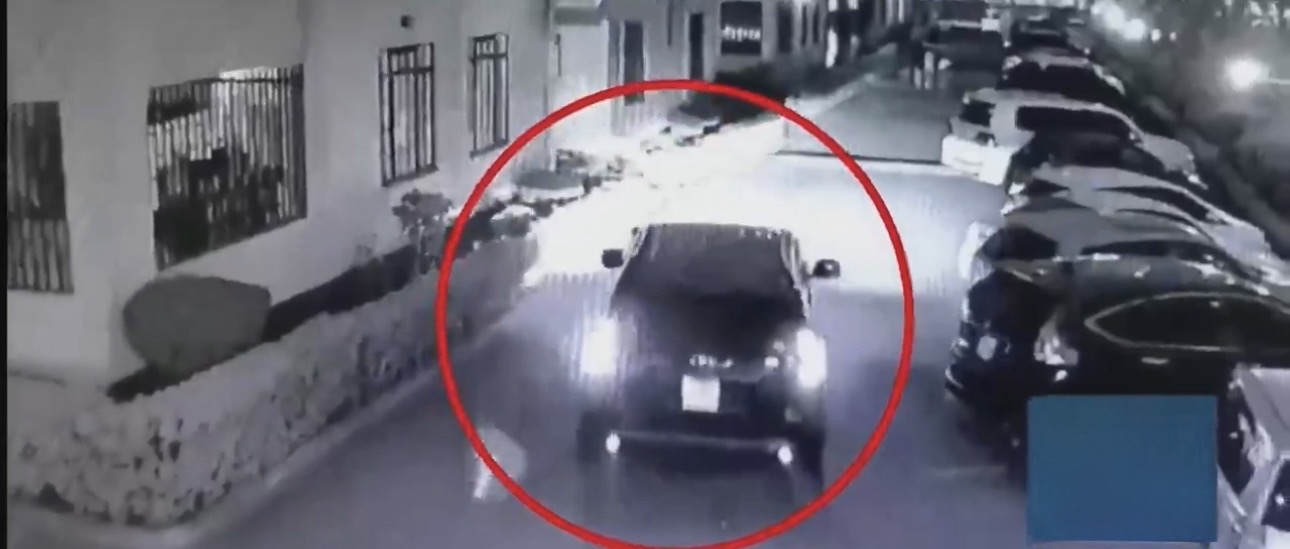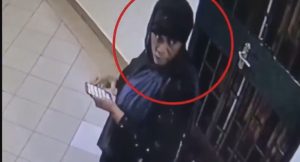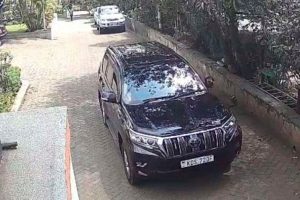Investigations
Inside Kenya’s High-End Crime Wave—When Thieves Drive Better Cars Than You
Class deference runs deep in Kenyan society, and a well-dressed man stepping out of a Prado commands instant respect, even from those paid to be suspicious.

They arrive in broad daylight, impeccably dressed, behind the wheel of vehicles that cost more than most Kenyans earn in five years.
Security guards snap to attention, gates swing open without question, and by the time residents realize something is wrong, the gang has vanished into Nairobi’s labyrinthine traffic, leaving behind only grainy CCTV footage and a profound sense of violation.
Welcome to Kenya’s new criminal economy, where the getaway car has gone from rust bucket to boardroom luxury, and where thieves have learned that the fastest way past a security checkpoint isn’t a gun. It’s a gleaming Toyota Prado.
The September Spree
The crime spree that has gripped Nairobi’s affluent neighborhoods began in earnest on September 26, when a black Toyota Prado attempted to access a residence along General Mathenge Drive before the occupants fled upon discovering someone was home.
What followed was a brazen two-week rampage across Kileleshwa, Kilimani, Parklands and Westlands that has exposed an uncomfortable truth.
Our security infrastructure was designed for criminals who look like criminals, not ones who look like CEOs.
The psychology behind this shift is as brilliant as it is disturbing.
Police records show that over the past five years, luxury vehicles have increasingly become the transport of choice for criminals, replacing the modest Proboxes and Fielders that once dominated the underworld’s motor pool.
The reason is disarmingly simple.
Class deference runs deep in Kenyan society, and a well-dressed man stepping out of a Prado commands instant respect, even from those paid to be suspicious.
The Power Dynamic
“These criminals have studied us,” admits one veteran security consultant who spoke on condition of anonymity. “They know that a guard earning 15,000 shillings a month isn’t going to aggressively question someone who pulls up in a car worth 8 million. The power dynamic is already skewed before a word is exchanged.”

A screen grab of CCTV footage of one of the thieves suspected to be behind a series of burglaries in Kilimani, Kileleshwa and Westlands
Indeed, investigators have found that security personnel often feel intimidated by luxury vehicles and quickly open gates to avoid potential complaints that could cost them their jobs.
It’s a vulnerability that transforms every gated community into a soft target, regardless of how high the walls or how sophisticated the access control systems.
The execution is surgical.
The gangs typically arrive with members posing as prospective tenants, estate visitors, or service providers.
Their vehicles, predominantly Toyota Prados, though a white Toyota Harrier was also deployed in a September 30 incident in Westlands, serve dual purposes.
They provide operational camouflage and, crucially, they inspire hesitation in potential witnesses.
Ghost Cars on Real Roads
But here’s where the operation gets truly sophisticated.
The number plates on these vehicles tell a story of criminal ingenuity.
One black Toyota Prado bearing altered plates, when checked against the National Transport and Safety Authority database, actually corresponds to a silver Toyota Lite Ace van registered in December 2024 to a woman as a commercial vehicle.
The real Prado’s identity remains a ghost in the system.

A screen grab of CCTV footage of a Toyota Prado used by individuals suspected to be behind a series of burglaries in Kilimani, Kileleshwa and Westlands.
This pattern repeats across incidents. Stolen plates. Cloned registrations.
Vehicles that exist in the physical world but have no legal footprint. It’s identity fraud applied to automobiles, creating assets that can operate in plain sight while remaining virtually untraceable.
Beyond Burglary
The implications extend beyond property crime. National Police Service Spokesperson Nyaga Muchiri confirmed that these tactics aren’t limited to burglars.
Kidnappers, murderers, and drug traffickers have all adopted the luxury vehicle playbook.
When every black Prado becomes a potential threat vehicle, the entire trust infrastructure of urban life begins to erode.
Law enforcement’s response reveals both adaptation and limitation.
Muchiri emphasized that police have intensified community policing efforts, with commanders engaging social security groups and crafting messages about alertness and collaboration.
He noted that only one of five recent attempted burglaries in the targeted neighborhoods was successful, crediting quick response and community vigilance.
The Uncomfortable Question
But here’s the uncomfortable question nobody wants to ask. Are we simply displacing crime to less affluent areas?
The CCTV cameras that Muchiri credits as crucial investigative tools have become more affordable and widespread, even in lower-income neighborhoods. Yet surveillance footage is only useful after the crime has occurred.
It doesn’t prevent the initial violation, and for many victims, that psychological breach is the lasting damage.
The economic logic driving this trend is stark.
Toyota vehicles account for 54.91 percent of all cars stolen in Kenya , making them simultaneously the most targeted and the most useful for criminal operations.
A Prado stolen in Karen can be used to rob a home in Runda before being stripped for parts in Eastlands, or spirited across the border into a vast regional network where vehicle identification numbers are as fluid as the borders themselves.
A Perfect Storm
What makes this moment particularly dangerous is the intersection of several criminal evolutions happening simultaneously. Gangs have professionalized.
Technology has made vehicle cloning trivial. Border controls remain porous. And most critically, our social conditioning, the reflexive deference to wealth signifiers, has become weaponized against us.
The solution, such as it exists, won’t come from more gates or higher walls. It requires a fundamental recalibration of how security is conceptualized in mixed-income urban environments.
Guards need training that empowers them to question anyone, regardless of vehicle.
Residents need to accept that real security sometimes looks like inconvenience, like rigorous identity checks even for visitors in luxury cars.
And law enforcement needs resources to crack down on the vehicle documentation fraud that makes these operations possible.
The Blueprint Exists
The investigation into the current crime wave continues, with detectives working to identify the full fleet of luxury vehicles being used by the syndicate.
But even when these particular criminals are caught, and they will be, the blueprint has been established. Other gangs are watching, learning, adapting.
The message is clear. In modern Kenya, the most dangerous criminals don’t lurk in shadows.
They valet park at the gate and smile as they’re waved through. And until we accept that threat can arrive wrapped in affluence, our most exclusive neighborhoods will remain our most vulnerable targets.
The thieves have upgraded their rides. The question is whether our security consciousness can keep pace.
Kenya Insights allows guest blogging, if you want to be published on Kenya’s most authoritative and accurate blog, have an expose, news TIPS, story angles, human interest stories, drop us an email on [email protected] or via Telegram
-

 News2 weeks ago
News2 weeks agoKenyan Driver Hospitalized After Dubai Assault for Rejecting Gay Advances, Passport Seized as Authorities Remain Silent
-

 Investigations1 week ago
Investigations1 week agoMoney Bior, Lawyer Stephen Ndeda Among 18 Accused Of Running An International Fraud Ring Involved With Scamming American Investor Sh500 Million
-

 Investigations6 days ago
Investigations6 days agoNestlé Accused of Risking Babies’ Health in Africa with ‘Toxic’ Cerelac Product Sold Highest in Kenya
-

 Business2 weeks ago
Business2 weeks agoConstruction Of Stalled Yaya Center Block Resumes After More Than 3 Decades and The Concrete Story Behind It
-

 Investigations2 weeks ago
Investigations2 weeks agoHow Somali Money From Minnesota Fraud Ended In Funding Nairobi Real Estate Boom, Al Shabaab Attracting Trump’s Wrath
-

 News1 week ago
News1 week agoTSC Announces Major Policy Shift To End Transfer Of Promoted Teachers
-

 News6 days ago
News6 days ago48-Year-Old Woman Who Pushed 25-Year-Old Boyfriend To Death From 14th Floor Kilimani Apartment Arrested
-

 Investigations3 days ago
Investigations3 days agoHow Land Grabbing Cartels Have Captured Ardhi House














